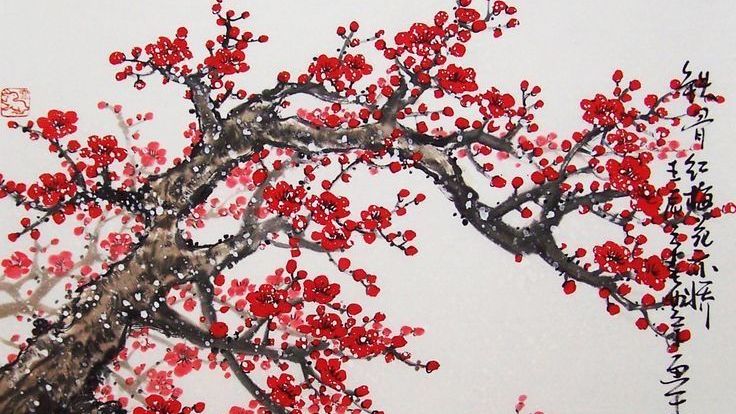assorted ramblings之最
absolutely entranced and delighted by the use of 最 as a noun meaning ‘utmost, best, greatest’
you have some very normal and expected sentences like 世界之最 ‘number one / the best in the world’, 中华之最 ‘number one / best in China’, 历史之最 ‘the utmost / best in history’
but then you have some absolutely wonderful usages like
ok but. there is no word for scenery here. this just says ‘blah blah out country’s Most nature’. just. the most nature
but there’s no interesting! or aspects!!!!! the Most diamond
yes, before anyone yells at me, I am very aware that it is possible to translate these idiomatically and it all makes sense
this construction is FASCINATING. because this last one - 世界钻石之最 could be translated (I would translate, if I hadn’t seen it?) to ‘the greatest among the diamonds of the world’, where the 最 automatically references a) the noun previously mentioned, and b) the scope previously mentioned (i.e. the diamonds In the world)
pleco actually has a similar sentences 钻石之最 which it does translate as ‘the best (or biggest) of all the diamonds’, so 最 here roughly functions like the adjective ‘utmost’ in english. you can’t say ‘the most diamond’ in non-meme language, but you CAN say ‘the utmost diamond’, though it’s still marginal (native english speakers below: tell me whether these reads naturally to you or not).
but in the sentences above, 世界钻石之最, it’s almost like a classical construction in that we’ve got an implied missing noun here. the MOST […] […] of the world’s diamonds. the most what?? fill it in yourself, you bastard. this could also be translated I think as ‘the most interesting aspects’ (keeping their translation) of the world’s diamonds. that means something slightly different to ‘the most interesting aspect in the world’ (which happens to be about diamonds).
this is a question about scope!! and the relationship between the three ‘nouns’(used loosely because 最 is a noun-y kind of quantifier or a quantifier-y kind of noun? pushing the boundaries of nounhood either way) in this sentences: the world, the diamonds, and the Most. this is Fine.
this is a great example of how funky compounding can get in mandarin, and how it can be very…ambiguous is not the right word, because that implies that there is one correct answer and with access to context it would be clear. but how there can be multiple possible readings available at one time, which context may in fact not clear up at all. a topic for another day, and one I’ve talked about vaaaaaaguely before
(side note: it’s kind of annoying searching for this construction since it mostly appears just as a little more formal version of 最. for example 患难困苦,是磨炼人格之最高学校. here you could just substitute 之最高学校 with 最高学校 and it would mean exactly the same thing)
anyway. there are plenty of vague ones like 人生之最. the most What in life? just the most????? the best thing? or perhaps if there was another sneaky noun somewhere before it (like the diamond and world example) the best That Thing in life? I honestly don’t know. this is not an informative post. this is a thought, out loud, in real time. expect questions, not answers!!
and then you have other ones which are soooooooo topic-comment that they are just BEGGING for me to put a 也 at the end and whack them in a textbook. for example: 参军当兵光荣之最 ‘participate-army serve-as-soldier honour-之最’ > where is my ‘is’??? where is my verb??? you fool. you coward. in this house we need neither. remember that the A = B, the copula, the most basic relationship between the subject and the predicate can be expressed in chinese by just AB. for example: 宋,小国. song = a small country. this is usually marked with commas in anything from ye olden times when put in textbooks to make it easier to parse. but it could also be 宋小国 and that would mean the same thing. (this is very visible when we look at the way that adjectives work: 山高 or more helpfully punctuated 山, 高 is ‘as for the mountain, it is tall’ or ‘it tall-s’ as 高 is an adjective and technically therefore a stative verb.)
so this sentence could be rephrased 参军当兵, 光荣之最. to translate it with the clunky way japanese-english translators often do when being literal: ‘as for participating in the army and serving as a soldier, it is the greatest honour’ / ‘…, it is the greatest part of the honour’ depending on how you parse the 之最. let’s add the affirmative particle / comment marking particle 也 (no it doesn’t mean also here; remember lwj’s 非也!when defending wwx on the steps of jinlintai) which it is BEGGING for and we get:
how very classical!!!! how very nice!!!
we could also go one step farther and add a topic-marking particle 者 (yes, you most likely know this as a nominaliser but it has a far greater range of usage than that):
woweeee. such vibes. truly the Most sentence.
….this got wildly off track. anyway. my point is that in-depth linguistic speculation about how it actually works and musings on translation practices aside, I am going to enjoy thinking about ‘he is truly the Most character’ every time I see this construction










